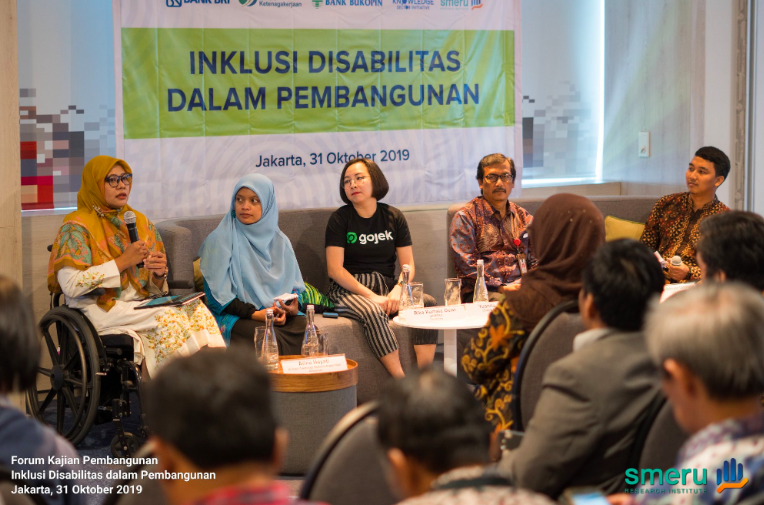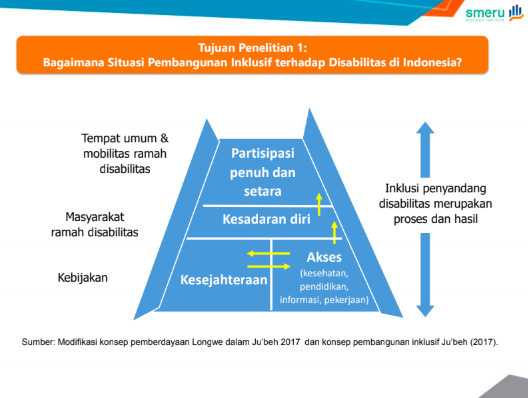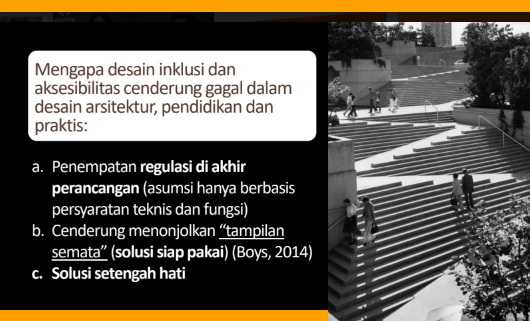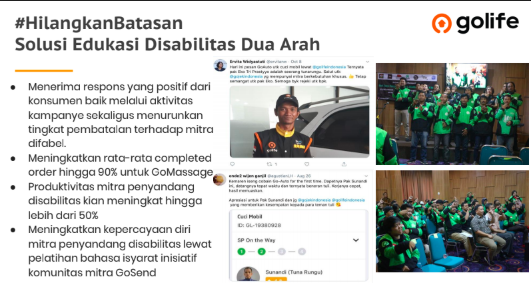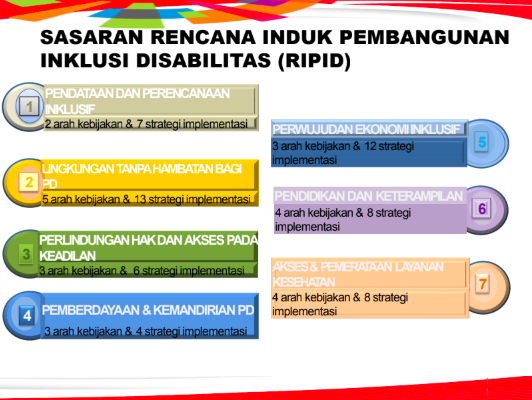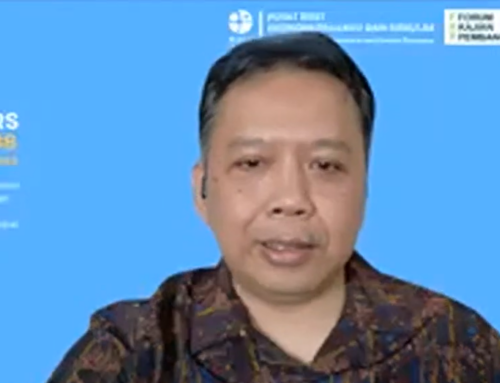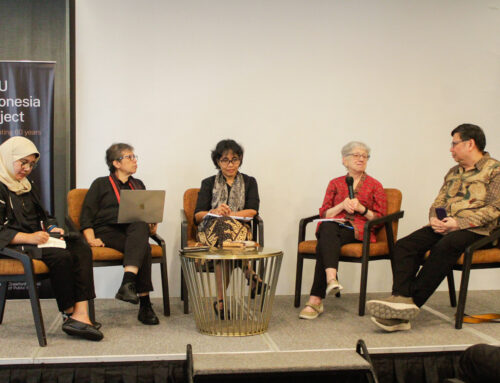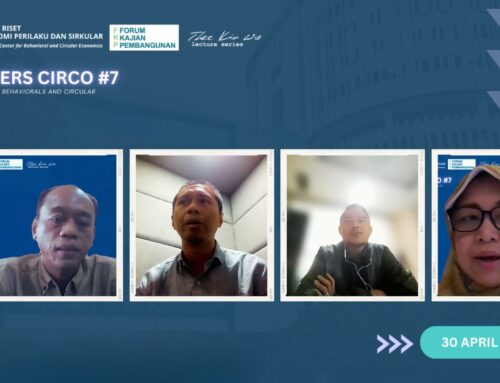People with disabilities are among the most vulnerable group to be excluded from the society. To ensure that every member of the society benefits from development, stakeholders from the government, industries, the academia, and the general public are working together to create a more inclusive society. On Thursday, 31 October 2019, The SMERU Research Institute hosted the last FKP seminar of the month regarding the inclusion of people with disabilities in development. The speakers were Rika Kumala Dewi (The SMERU Research Institute), Arina Hayati (Institut Teknologi Sepuluh November), Yuanita Agata (Gojek Indonesia), and Ade Rustama (Coordinating Ministry for Human Development and Cultural Affairs). This event is also the first FKP event which was aided by sign language interpreters to facilitate participants with hearing disabilities.
Rika Kumala Dewi began the seminar by presenting her study on the constraints of achieving an inclusive development for people with disabilities. Based on the 2018 National Socioeconomic Survey, people with disability 12.29% of Indonesia’s have some form of disability. The proportion of people with disabilities is higher in urban areas and among women. People with disabilities, especially severe disabilities, tend to have lower welfare levels and have less access to education than able-bodied people. Rika believes that the root of this problem is the society’s hostility towards people with disabilities, both in terms of behaviours and facilities. In turn, people with disabilities are hindered from accessing various public services and participating in development activities, thus worsening the exclusion and marginalization of people with disabilities.
Arina Hayati shared her ideas on inclusive architecture and participatory approach in designing inclusive spaces for people with disabilities. As a lecturer in architecture with a disability, she emphasized that best practices are not only theory-based, but should refer back to the real-life experiences of those involved. The current idea of inclusive design tends to fail, because the design tends to prioritize aesthetics as opposed to accessibility. When using a participatory approach, architects need to explore, understand and interpret the needs of people with disabilities by going through bodily experiences.
Next, Yuanita Agata shared about Gojek’s contribution in creating livelihood for people with disabilities. Gojek and GoLife partnered with thousands of people with disabilities, who are divided into several services such as GoSend, GoMassage, GoClean and GoAuto. More than 90% of GoLife users are satisfied with the services provided by partners with disabilities. However, the average number of cancellations for partners with disabilities are relatively higher. As a solution, Gojek introduced their #HilangkanBatasan (or remove borders) campaign to educate consumers about Gojek’s partners with disabilities. This campaign received positive responses from both consumers and partners and has successfully reduced the rate of cancellations, and significantly increases the productivity of partners with disabilities.
Finally, Ade Rustama shared the government’s perspective in achieving inclusive regulations for people with disabilities. In recent years, there has been a paradigm shift from a charity-based to a rights-based approach in the government’s view of disability. In other words, the focus of inclusive development is no longer about solving a social problem, but rather in fulfilling the rights of people with disabilities so that they can fully participate in development. Government regulation no. 70 of 2019 becomes a guideline in the effort to mainstream the rights and needs of people with disabilities in every government program. These programs are spread into different institutions, which include the Ministry of Social Affairs, Ministry of Health, Ministry of Education and Culture, and even the National Police.
For the complete presentation and Q&A session, please refer to the video and materials provided.
